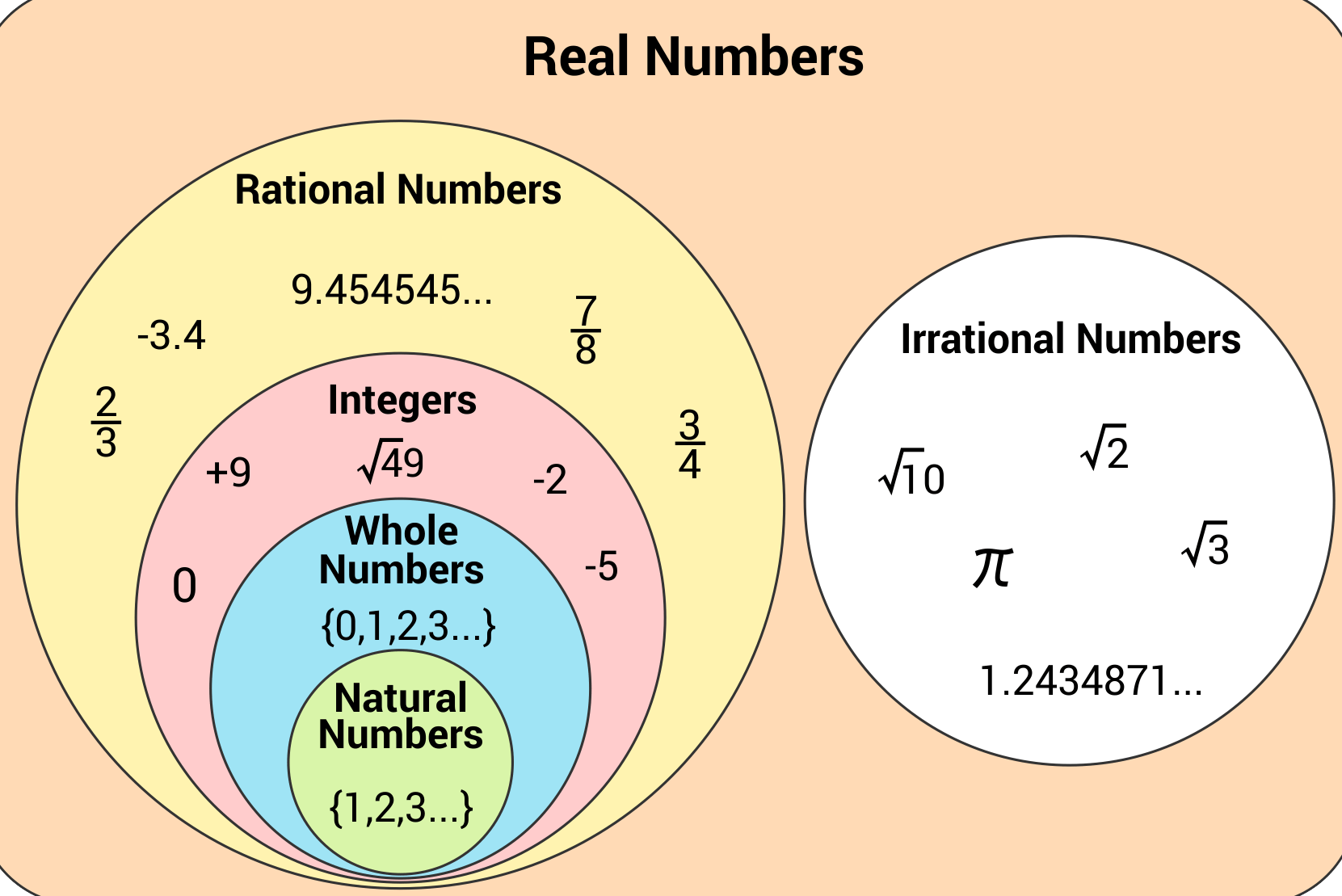1. What is a whole number?
a) A decimal number
b) Positive numbers
c) Numbers greater than 1
d) Positive integers including 0
2. 0 is a whole number?
a) Yes
b) No
c) May or may not be
d) None of the above
3. Can negative numbers be whole numbers?
a) Yes
b) No
c) It depends on a specific number
d) Both A and C
4. If the radius of the circle is 4m, find the area of the circle in the nearest whole number.
a) 4π
b) 50m2
c) 2π
d) 49m2
5. What is the relation between natural numbers and whole numbers?
a) Both are the same
b) They are not related
c) Both A and B
d) Natural numbers are the subset of whole numbers
6. Write 25% as a whole number.
a) 1/4
b) 25
c) 4
d) 1/2
7. All whole numbers are integers?
a) Yes, except zero
b) No, integers include only negative values.
c) Yes, all whole numbers are integers.
d) Integers are the subset of whole numbers.
8. What is the smallest whole number?
a) 0
b) -1
c) 1
d) 10
9. Define whole numbers in a single line.
a)Fractions and decimals
b) Natural numbers including zero
c) Whole numbers are negative integers
d Whole numbers are finite and composite numbers
10. What is the nearest whole number to 3.97?
a) 3
b) 4
c) 3.9
d) 39
11. What is the sum of the first 10 whole numbers?
a) 45
b) 50
c) 35
d) 55
As the smallest whole number is 0.
12. What is the largest whole number?
a) 1000000
b) Cant find
c) There is no largest whole number
d) both a and c
13. Verify associative property using the whole number.
a) 2+3+4=3+4+5
b) 2.3=3.2
c) 4.5.6=5.6.4
d) All
14. The set of whole numbers is?
a) Finite set
b) Infinite set
c) empty set
d) null set
15. 0 is known as?
a) additive identity
b) multiplicative identity
c) additive inverse
d) multiplicative inverse
16. 1 is known as?
a) additive identity
b) multiplicative identity
c) additive inverse
d) multiplicative inverse
17. What is the largest five-digit whole number?
a) 99999
b) 10000
c) 9999
d) 19190
18. What is the smallest six-digit whole number?
a) 100,000
b) 999,999
c) 1090290
d) 109800
19. What is the predecessor of 999?
a) 1000
b) 998
c) 999
d) -999
20. What is the successor of 10000?
a) 100001
b) 10001
c) 9999
d) 9999
21. The set of whole numbers between -5 and 6?
a) {-5,-4,…..5,6}
b) {-4,-3,-2……4,5}
c) {1,2,3,4,5,6}
d) {0,1,2,3,4,5,6}
22. What would happen if 0 is divided by a whole number?
a) The result is always 0.
b) The result depends on the given whole number.
c) The result is always undefined.
d) The result is always infinity.
23. What would happen if 0 is multiplied by a whole number?
a) The result is always 0.
b) The result is always 1.
c) The result is the whole number itself.
d) The result is undefined.
24. Which of the following is not a whole number?
a) 23/2
b) 12/6
c) -4
d) both a and c
25. What is the sum of the first 100 whole numbers?
a) 4950
b) 4955
c) 495
d) 49505
25. What is the product of the first ten whole numbers?
a) 3,628,800
b) 3456
c) 5545
d) 0
26. If x is a whole number, what is the value x+0?
a) 0
b) 1
c) x
d) x/0
27. What is the difference between the largest 5-digit number and the smallest 5-digit number?
a) 89,999
b) 99,999
c) 9,999
d) 80,000
28. What is the product of a whole number and 1?
a) The product is always 1.
b) The product is always 0.
c) The product is always the whole number itself.
d) The product is infinity.
29. If m and n are whole numbers, what is the value of m – n when n > m?
a) m-n is always positive.
b) m-n is always negative.
c) m-n is zero
d) undefined
30. Khan has 15 apples. He gives 3 apples to his friend. How many apples does Khan have now?
a) 15
b) 3
c) 5
d) 12
31. If a box contains 8 chocolates, and Tom eats 3 of them, how many chocolates are left in the box?
a) 5
b) 3
c) 0
d) 8
32. Maria has 24 pencils. She wants to share them equally among her 4 siblings. How many pencils will each sibling get?
a) 3
b) 4
c) 5
d) 6
33. John saved $50 each month for 6 months. How much money did he save in total?
a) $360
b) $300
c) $350
d) $3000
34. The sum of two consecutive whole numbers is 45. What are the numbers?
a) 22 and 23
b) 12 and 13
c) 44 and 1
d) 21 and 24
35. Whole numbers are countable?
a) Yes, whole numbers are countable.
b) No, some of the whole numbers are not countable.
c) Some of the natural numbers are countable.
d) Countability depends on the size of the set
Learn more about the basic concept of Maths

[…] What are the factors in Mathematics?The factor of a number is a whole number, which divides the number without leaving a reminder (zero reminder). To find the factors, you must […]